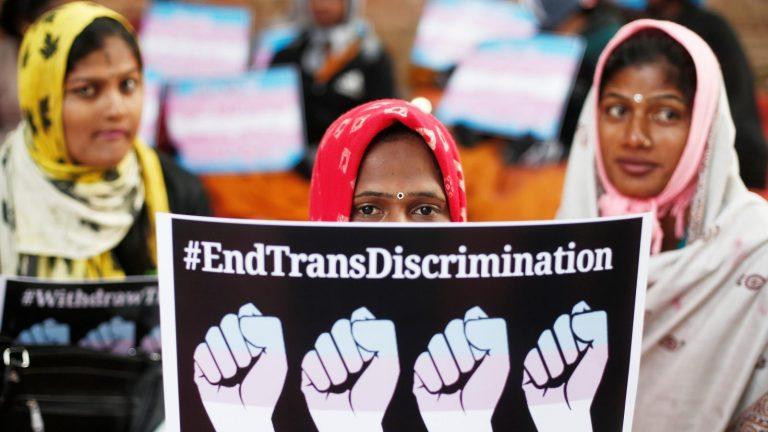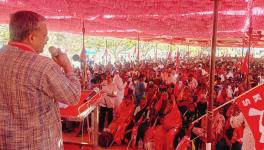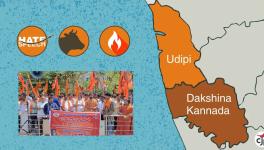Karnataka Clears Transgender Reservation; Now Other States Must Too

Karnataka has amended its General Recruitment Rules to provide reservations to the transgender community. You may wonder how it changes the status quo for transgenders: It instills a sense of hope for change and takes a step forward in ensuring equity within our national diversity. All Indian states must watch and learn, writes ABHISHEK ANAND.
—-
Karnataka became the first state in India to reserve one percent of government jobs for the transgender community. The state government recently notified a division bench of Chief Justice Abhay Shreeniwas Oka and Justice Suraj Govindraj that a final notification dated July 6 had been issued to amend the Karnataka Civil Services Rules, also known as General Recruitment Rules, 1977.
The state government can now fill one percent of vacancies in any service or post with transgender candidates in each category, general, scheduled tribes, scheduled caste, and other backward classes.
The government also informed the high court that it received no objections to the draft notification for the amendment.
Background/Role of Jeeva
The amendment of the state government’s recruitment rules came after it failed to include a separate category for transgender people while announcing the recruitment of police constables. They sought to fill around 2,672 posts with the inclusion of the post of Special Reserve Constable Force and Bandsmen. The rules that were announced pertained to only males and females and disregarded the transgender community.
Also read: Quota for transgenders welcome
The charitable trust, Jeeva, filed an interlocutory application challenging the exclusion in Sangama vs State of Karnataka. It also asked for a directive to the state government to create a plan for transgender people to be given a reservation in recruitment to the Special Reserve Constable Force and Bandsmen.
After receiving the opinion of the Karnataka State Commission for Backward Classes, the state government suggested examining the quota for transgender people under one of the OBC categories.
Jeeva, on the other hand, demanded horizontal reservation for transgender people rather than under the OBC group, claiming that they were discriminated against because of their gender.
The charitable trust also pointed out that if the proposal of the state government to have a vertical reservation for the transgender community nested within the OBC category was accepted, then it would create a lot of issues. For example, it would disallow people from the SC and ST community to seek the benefits of the reservation scheme.
Also read: Govt. notifies 1% reservation for transgender persons in jobs
Not only that, if someone from the transgender community is seeking the benefit of reservation under the OBC category, then it would not be possible to avail benefits on the grounds of gender. Further, it would have significantly increased the competition among the OBC category which would put the transgender community at a relative disadvantage.
Sources of Inspiration
The IA drew inspiration from the judgement of the Supreme Court in NALSA vs Union of India in 2014. The court cited Article 21 of the Indian Constitution that guarantees the right to life. It also instructed the Centre and state governments to integrate the trans community into society and extend all kinds of reservations.
This ruling is one of the most significant for transgender rights. In it, the apex court declared that there should be no discrimination on grounds of gender identity, which can be male, female, or transgender.
Jeeva referenced the judgement of the Supreme Court in Indra Sawhney vs Union of India in the year, 1992. In this case, the court declared that reservations can be either vertical or horizontal. It cited this precedent to make the case for the inclusion of the transgender community in the horizontal model of reservation.
This model allows reservation not only based on gender identity but based on more than one identity, such as transgenders, Other Backward Classes, and so on.
Vertical and Horizontal Reservation
Vertical reservation refers to reservations for Scheduled Castes, Scheduled Tribes, and Other Backward Classes. It applies to each of the law’s specified groups separately. Article 16(4) of the Constitution contemplates this model and defines that each category should be adequately represented through reservation.
Also read: How horizontal, vertical quotas work; what Supreme Court said
Horizontal reservation refers to the provision of equal opportunity to other beneficiaries, such as women, veterans, transgender people, and people with disabilities, spanning beyond vertical divisions.
Article 15(3) of the Indian Constitution contemplates the horizontal model because it provides reservation based on more than just one identity.
#PublicReact!
Asked what he thinks about the Karnataka High Court judgement, Ahan Sen (20), an undergraduate student and aspiring filmmaker, says, “It’s a great step. Transgender people are part of society and too often face discrimination, including when seeking employment. This is the first step towards a future where all people can be fully integrated into society irrespective of gender or sexuality.”
Sen thinks that in India, the LGBTQ+ community is generally looked down upon. He hopes all would understand why reservations are needed for the transgender community/ are being taken. He says it would hopefully help people “accept those who are different” are as much a part of them as anything else.
Phelian, 20, a non-binary artist, says, “This is a much-needed and crucial step forward in the queer liberation movement in India. However, I can’t help but feel disheartened when I see the bigger picture. This recognition shouldn’t have taken so long. It’s 2021 and trans lives are under attack in this country.”
Phelian says there is still no solid framework for the queer in India to fall back on, legally or socially. “We’re tired of asking for the bare minimum and being let down even then. If it is implemented nationwide, it will be instrumental in providing job security and even a level of social respect but if it’s just limited to one state, I don’t see a drastic change soon,” they say.
Sangama, a civil society organisation that works with sexual minorities, sex workers, people living with HIV and the urban poor, tweeted from its official handle the positive responses to the High Court ruling. Key personalities have expressed happiness and hoped it was only a beginning and not the end of the pursuit of equality.
It shared the views of historian and writer Ramachandra Guha on the verdict on Twitter, “This is an important decision that recognizes and seeks to redress the discrimination that transgender people have suffered from, and I welcomed it.”
It also shared the responses of actors Ratna Pathak Shah and Naseeruddin Shah on Twitter, “This decision is long overdue—unless society learns to accept and accommodate those who are different, trans people will be forced into the most demeaning jobs. Here is an opportunity to change the script. Zindabad Nisha Gulur and Sangama for your efforts in making this happen!”
On behalf of Sangama, its programme manager, Nisha Gulur, referred to in the above tweet, had filed a PIL in the Karnataka High Court that led to the 1 percent reservation.
This is the first step towards change. In India, the phrase ‘unity in diversity is constantly uttered. While many recognise and participate in the movements to recognise diversity, some are still strangers to the idea. The Constitution guarantees the right to life and we should realise its significance and full meaning.
The drafters of the Constitution imagined a great nation where people do not face discrimination and can contribute to building the nation. In such a nation, it is our fundamental moral duty to create an environment where each community gets a significant place and equal rights.
(Abhishek Anand is a student of the Symbiosis Centre for Media and Communication, Pune, and an intern at The Leaflet. The views expressed are personal.)
Get the latest reports & analysis with people's perspective on Protests, movements & deep analytical videos, discussions of the current affairs in your Telegram app. Subscribe to NewsClick's Telegram channel & get Real-Time updates on stories, as they get published on our website.
























